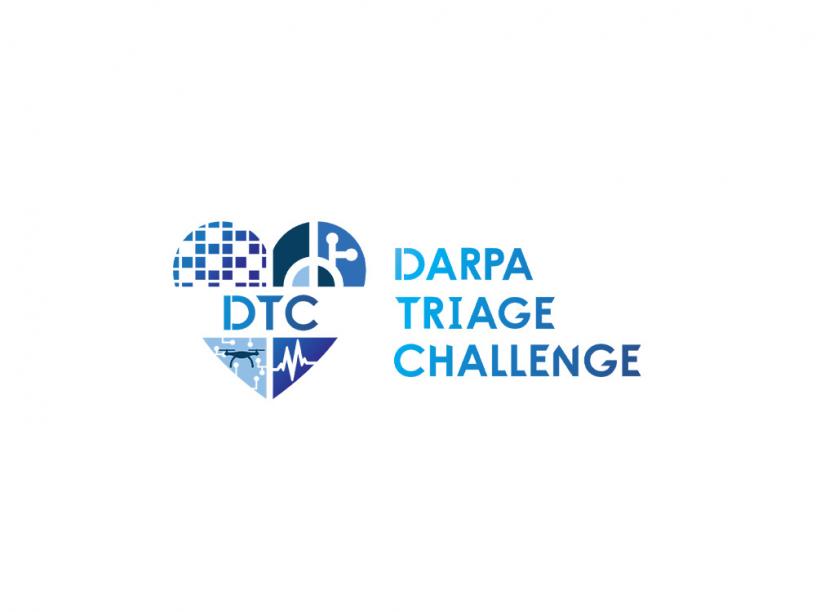
The agency is encouraging data scientists, ML/AI, roboticists, pre-med students, and STEM experts to compete for prizes
Nov 7, 2023
Editor’s Note: This Update was edited on 11/16/2023 to include two additional teams coming on contract, and on 11/21/2023 to embed a related video.
DARPA is seeking self-funded teams to participate in the DARPA Triage Challenge, a series of events to spur development of novel physiological features for medical triage. The DARPA Triage Challenge aims to drive breakthrough innovations in identification of “signatures” of injury that will help medical responders perform scalable, timely, and accurate triage. Of particular interest are mass casualty incidents, in both civilian and military settings, when medical resources are limited relative to the need.
Competitors may join one or more of the three parallel competitions. The DARPA Triage Challenge takes place over three years (Fall 2023 - Fall 2026) over five tracks. Participants may compete through DARPA-funded tracks or self-funded tracks. The challenge will host workshops in years one and two at an east coast location.
Virtual Competition
Qualifying teams will gain access to unique datasets that are not publicly available outside of the DARPA Triage Challenge, a new virtual environment for mass casualty simulation, and computational resources. Teams from Robotika International and independent researcher Richard Chase have already qualified for the competition, and DARPA is encouraging others such as those in data science, ML/AI, robotics, pre-med, and STEM -- to get involved and develop a self-funded team to support program goals and qualify for prize money.
“This is DARPA's newest prize challenge. It's in the vein of others you may have heard of, like the Subterranean Challenge, Robotics Challenge, and autonomous vehicle challenges,” noted CDR Jean-Paul Chretien, program manager for the DARPA Triage Challenge. “All of these spurred outside of the box thinking and drove their fields forward. And that's what we're hoping for with the DARPA Triage Challenge.”
Systems Competition
During primary triage in the field, casualties are assessed to determine priorities for treatment on scene and transport of patients to hospital. The objective of the Systems Competition is to detect and identify physiological signatures of injury derived from data captured by stand-off sensors onboard autonomous systems. This will enable early prioritization of casualties in primary triage, allowing medical care professionals to quickly focus on the most urgent casualties.
DARPA-funded teams from Arete Associates, Battelle Memorial Institute, Charles River Analytics, Raytheon BBN, University of Maryland, Carnegie Mellon University, and the University of Pennsylvania will aim to develop algorithms that detect those signatures in real-time from stand-off sensor data to provide decision support appropriate for austere and complex pre-hospital settings. Teams will use their stand-off sensors, robotic mobility platforms – such as unmanned aerial and ground vehicles -- and algorithms to autonomously process sensor data and provide real-time casualty identification and injury assessment. Of particular interest are signatures of acutely life-threatening conditions that medics are trained and equipped to treat during primary triage, such as hemorrhage and airway injuries.
Data Competition
During secondary triage, which follows initial evaluation and treatment in primary triage, casualties may be en route to, or have just reached, medical facilities. DARPA-funded teams from Arete Associates, Battelle Memorial Institute, Kitware, Inc., University of Vermont, and Michigan Technological University will aim to identify physiological signatures of injury derived from data captured by non-invasive sensors (contact-based or stand-off) to enable anticipatory decisions and prioritization for medical evacuation and care during secondary triage. Of particular interest are early signatures indicating a need for life-saving interventions against conditions, such as hemorrhage and airway injuries. The Data Competition will use DARPA provided de-identified, multi-modal physiological data from trauma patients in diverse settings and cohorts provided by the Research Infrastructure for Trauma with Medical Observations (RITMO) program.
Additional DARPA-funded teams are anticipated to come on contract in the coming weeks.
For teams who are interested in submitting self-funded teams, qualifications are due November 27, 2023 and the first of three annual challenge events will be held fall 2024. Additional details on the Challenge, and associated prizes, are available at: https://triagechallenge.darpa.mil/.
